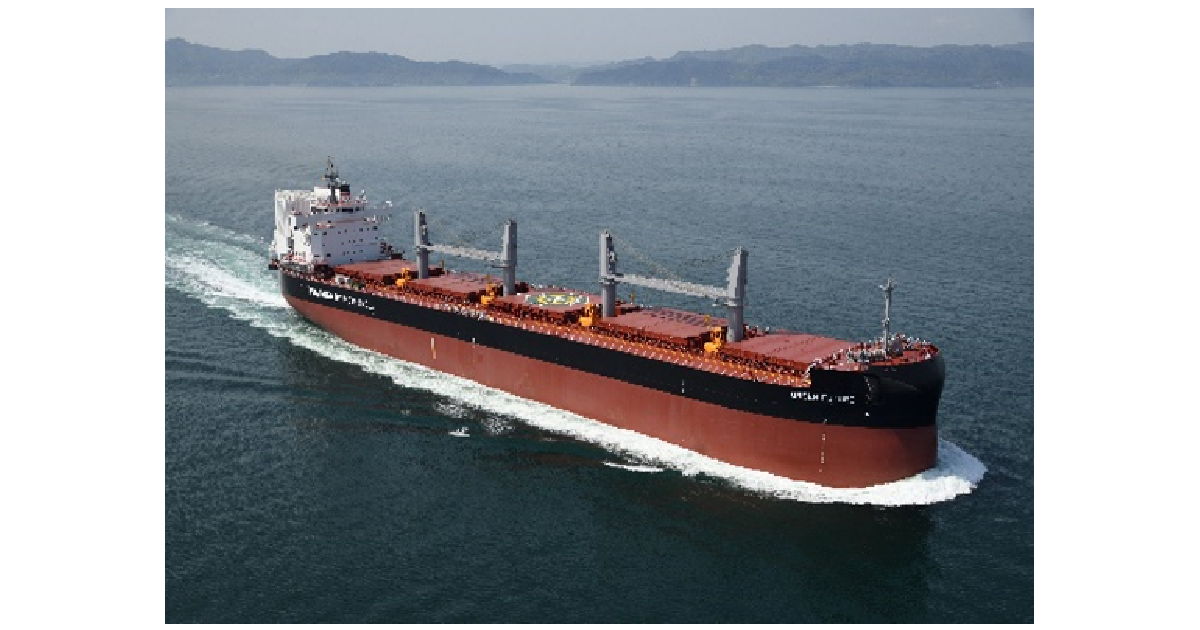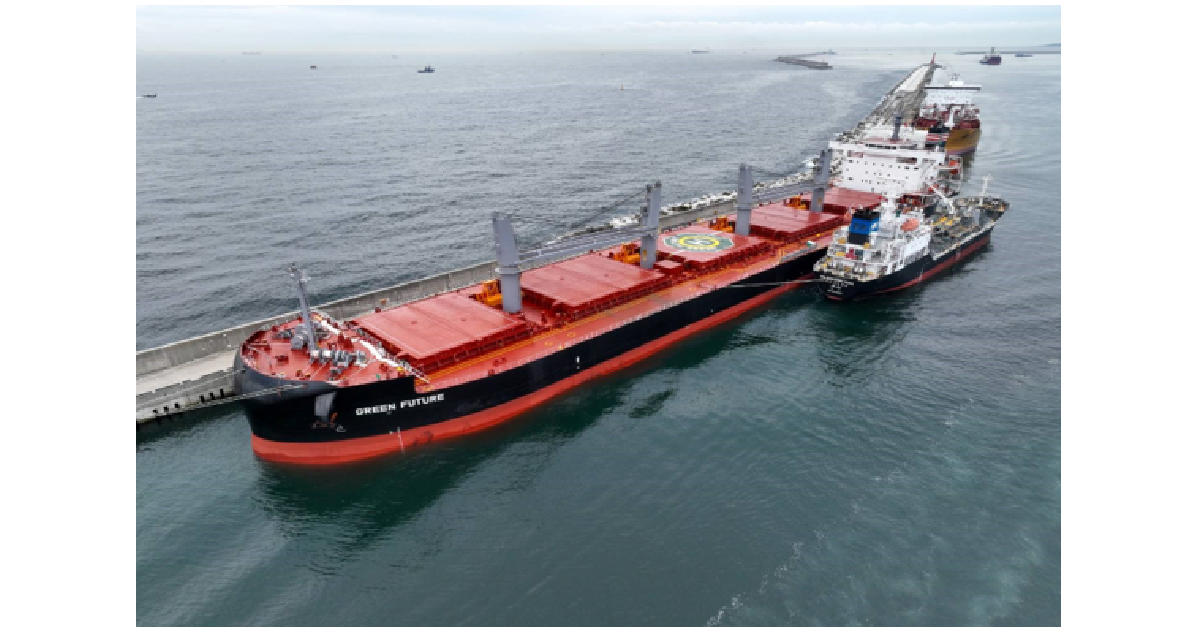ITOCHU Announces Supply of Low-carbon Methanol Fuel for NYK Line at Port of Ulsan, South Korea
September 30, 2025
ITOCHU Corporation (headquartered in Minato-ku, Tokyo; Keita Ishii, President & COO; hereinafter "ITOCHU") announced today that it has sold low-carbon methanol fuel*1 to Nippon Yusen Kabushiki Kaisha (headquartered in 3-2, Marunouchi 2-chome, Chiyoda-ku, Tokyo; Takaya Soga: President; hereinafter "NYK Line") and performed ship-to-ship bunkering (hereinafter "STS")*2 for Green Future, a methanol dual-fuel bulk carrier*3 regularly chartered by NYK Group company NYK Bulk & Projects Carriers Ltd, at the Port of Ulsan in South Korea on September 28.
|
Green Future, a methanol dual-fuel bulk carrier |
Supplying fuel at the Port of Ulsan |
The marine transportation industry is responsible for a percentage of global greenhouse gas (hereinafter "GHG") emissions and the volume of cargo shipped is expected to increase as the global economy expands. The reduction of the use of carbon-emitting marine fuels is an urgent issue. The International Maritime Organization (IMO) has created a strategy for reducing GHG emissions, and it has been working to achieve net-zero GHG emissions from international shipping by around 2050. The Japanese government also encourages the introduction of alternative fuels with the goals of reducing GHG emissions by 46% versus the fiscal 2013 level by 2030 and achieving carbon neutrality by 2050.
The low-carbon methanol fuel recently supplied by ITOCHU is made from biomass-derived raw materials, and it is expected that the GHG emissions throughout the life cycle of the fuel will be less than that of conventional fuels. Methanol fuel is in a liquid state at normal atmospheric temperatures and pressures, which makes using existing infrastructure relatively easy. The popularity of methanol fuel is expected to increase in the future together with the popularity of dual-fuel carriers. ITOCHU will use this opportunity to accelerate the development of a supply chain for low-carbon alternative fuels in the marine transportation sector and the energy transition whose roots are in the real demand that exists for it.
ITOCHU has put forth a new management policy, "The Brand-new Deal – Profit opportunities are shifting downstream –" and is pursuing a policy of enhancing its contribution to and engagement with the SDGs through business activities while listening to all stakeholders, including the market, and society.
-
*1Low-carbon methanol fuel
A kind of methanol fuel whose carbon emissions can be significantly reduced compared to conventional fossil fuels such as heavy oil -
*2Ship-to-ship bunkering
A method of connecting a docked or anchored ship to a bunkering ship pulled alongside it using a hose to directly supply fuel -
*3Methanol dual-fuel carrier
A carrier equipped with a dual-fuel main engine which can be fueled by both methanol and heavy oil


